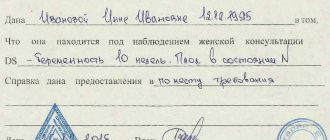Many couples, having lived together for some time, come to the decision that the relationship between the partners needs to be legalized. To do this, they need to contact the registry office and officially formalize the actual marriage relationship.
In order for the procedure for filing an application for marriage to go smoothly, before coming to the registry office, you should find out in accordance with what rules and regulations this application is being submitted and what documents should be attached to it.
Legal regulation of filing an application
Registration of marriage relations is an area of regulation of family law. Before contacting the registry office, it is necessary to study the rules and regulations in accordance with which the application is submitted. Primary requirements:
- In the absence of special circumstances requiring marriage as soon as possible, at least a month must pass from the moment of filing the application to registration.
- The marriage is certified with the mutual consent of the partners.
- The conclusion of a union is permitted between a man and a woman who have reached the age of majority. In exceptional cases, marriage is possible for persons under 18 years of age.
- The application must be completed by both parties. One half of the form is written by the bride, and the other by the groom.
- Registration is carried out in the presence of both spouses.
- Submitting an application is a purely personal matter. Therefore, it cannot be submitted through a lawyer or other legal representative.
Legal basis of the issue
This issue is covered by the Family Code of Russia, namely Section 2, Article 3. Additional information is included here from Federal Law No. 143 “On Acts of Civil Status”.
The basic rules for concluding a marriage alone are:
- marriage is concluded 1 month after filing the application. Special circumstances allow this to be done a little earlier;
- To formalize a marriage there must be the consent of both parties. These are only adults, unless there are other circumstances;
- The application must be completed by both future spouses or a representative.
Applying without a partner
Submitting an application for official registration at the registry office requires the presence of two main persons, that is, people between whom the marriage will directly be concluded. However, in certain situations, one of them may be deprived of the opportunity to come to submit documents. The reason for this may be various circumstances. The most common ones are:
- The presence of one of the newlyweds outside the country, the city in which the wedding is planned, the impossibility of arriving for objective reasons.
- Poor health of one of the parties, precluding attendance.
- Finding one of the newlyweds in prison.
Only in the presence of such serious reasons is it permissible for one of the spouses to submit an application to the registry office. If there are no such compelling reasons, and one of the parties cannot complete the request in the prescribed manner, the application is sent through the State Services website. On this portal it can be filled around the clock, but also with both newlyweds.
Special cases
There are some nuances when applying for marriage registration by one citizen. Let's look at the most typical ones in more detail:
- If one of the newlyweds is a citizen of another country, and he cannot be present in person when submitting the standard form for registering a marriage, he must fill out his side of the form himself or with the help of a translator and a lawyer. And also have this document notarized at the consulate of your country.
- When one of the spouses is in a serious illness or in prison, a notary is called to him to certify the completed form.
For those happy couples who want to unite their union in marriage, the state will not stand in the way. And even if the law provides for certain rules and procedures for filing an application, there are exceptions so that everyone can exercise their right to personal happiness.
Procedure for filing an application by one of the parties
In the absence of valid objective reasons why the future spouse will not be at the procedure, applications can be submitted, but only if all requirements established by law are met. The form in this case is the same as for submission by both parties. It must be filled out on one side by the bride and on the other by the groom, regardless of the circumstances. There is no separate form for serving one side at a time. The document is always completed by both persons. There is a certain order for entering data into it:
- The first to fill out is the person who is unable to attend this procedure at the registry office.
- The document is then certified by a notary. The date that matches the number on the stamp is entered.
- Finally, the second party fills out the back page of the document in the presence of civil registry office employees.
The date of the wedding ceremony is set one month after the application is accepted. But if the couple can prove the existence of special situations, the period can be reduced and the marriage procedure can be formally organized on the day of filing the documents. Such special conditions are considered:
- Bride's pregnancy.
- The birth of a common child.
- A threat to the health and life of one or two young people.
- Serious illness.
- Death of a loved one.
- The need for one of the future spouses to leave for a long period of time.
Along with the standard application form submitted by one spouse, the following documents must be submitted:
- Passports of both persons entering into marriage.
- Receipts for payment of fees for both newlyweds.
- Permission from the local government if one of the parties to the marriage is a minor.
- Divorce certificate (if one or both future spouses were previously married).
- Documents indicating the death of the former spouse or his recognition as missing, if such a circumstance exists.
- A visa or document certifying that there are no impediments to the marriage of a foreigner intending to participate in the ceremony.
It should be remembered that there are restrictions on marriage:
- Registration of relations between close relatives.
- Submission of an application by a married person.
- Registration of a petition from the adoptive parent and adopted child.
- Marriage if one person is incapacitated.
Sometimes the parties, in cases where one of the spouses cannot participate in filing the application, contact the registry office with a request to postpone the registration date. This request indicates the reason why it is not possible to carry out this procedure within the specified time frame. Based on the calendar schedule, the registry office staff will postpone the wedding to a later time.
You should be aware that the date can be changed no later than seven calendar days. If there is less time left before the wedding, then it cannot be rescheduled. If registration cannot be delayed, then the spouse, who cannot be present, must apply for notarized consent to this procedure in his absence.
In some cases, in order to submit an application to the registry office for one of the newlyweds, you need to complete several formalities. These typical situations include:
- When one of the newlyweds is a foreigner, his personal presence when submitting an application is excluded. To register a marriage, he needs to fill out one side of the form himself or through a translator and lawyer. The document must be notarized by the consulate of the country of residence.
- When one of the spouses is seriously ill or is in prison, a notary is called to him to certify the completed part of the form.
The process of completing individual applications with notarization
If, due to the circumstances described above, your partner cannot personally apply for marriage, you need to resolve this issue yourself. But before you contact the registry office, you should receive a properly completed and certified application from your future spouse.
In this case, the application procedure will look like this:
- a partner who cannot come to the registry office to submit an application fills it out independently, but does not sign or date it;
- the application must be signed only in the presence of a notary or other authorized person, and then a date is put on the application;
- a notary or other authorized person certifies the application, and the date on the seal he or she puts must coincide with the date of the application itself;
- Having received a properly completed and certified application from your partner, you must come with him to the territorial registry office, and in the presence of its employees, fill out and sign your part of the application, and then give them all the necessary documents.
Do not try to find a separate application form. In this case, the standard form No. 7 is used.
Please note that a power of attorney from a person who is absent when submitting an application is not required.
Certification of the application if there is no notary

Such a document has the same legal force as one certified by a notary. Many people prefer to use the services of Internet sites instead of personally visiting government agencies. So, through the State Services website you can submit an application for marriage. Consequently, if one of the newlyweds cannot appear at the registry office or MFC, then turning to electronic resources simplifies the procedure, since a personal visit to the notary is canceled.
To submit an application, you need a verified account on the website of state and municipal services. If there is no registration on the portal, then this must be done by following the instructions provided at this Internet address. First, select the “Electronic Services” section, then the corresponding item with the application form. Here you need to carefully enter the required data, select the date of registration and send the application. Once it has been processed, you will receive an email indicating the next steps. In this case, you cannot do without a visit to the registry office. This is necessary to submit original documents, receipts for payment of state fees, and clarify the date and time of registration.
Revocation of an application from the registry office by one of the newlyweds
Either one or two failed spouses can refuse to marry by withdrawing the application . Important to remember:
- the application submitted to the registry office is not returned;
- Reimbursement of paid state duty is not possible.
To withdraw your application, you need to follow these steps:
- go to the registration window at the registry office, explaining the reason for the visit;
- present your passport so that the employee can find the application;
- meet with a registry office employee;
- write a refusal to register the marriage (indicating any reason or not indicating it at all);
- In the refusal, indicate the details of your joint application and the number of the registry office.
Withdrawing and submitting an application to the registry office is quite simple and will not take much time if you familiarize yourself with the requirements and legal framework. Any situation will find its solution if you follow the rules and the letter of the law.
Divorce in the registry office without the consent of the second spouse
Filing an application by one spouse if the other does not agree and there are common children is possible in three special cases specified in Art. 19 RF IC. More details about each of them:
If the second spouse is missing
The party applying to the registry office must have a court decision proving the unknown absence of the second spouse. To obtain it, it is necessary to notify law enforcement agencies that the location of the husband or wife is unknown, and the search does not yield results, then go to court, attaching information about the results of the search work.
If a positive decision is made on the claim, the guardianship and trusteeship authorities will act to protect the interests of the absent party and appoint a property trustee authorized to speak on controversial issues in court.
The spouse present at the registry office will receive a divorce, but if the wanted person shows up, he will be able to resolve issues about the children (their place of residence, support) and the division of property by concluding agreements or in separate court proceedings.
If the spouse is incapacitated
The second spouse, one of the relatives, a medical institution or guardianship authorities can go to court to prove the incapacity of the husband (wife) due to the presence of a mental disorder. If a forensic psychiatric examination shows significant deviations from the norm, the judge will make a positive decision on the claim to declare the person incompetent. Providing a court decision to the registry office will enable the second spouse to initiate divorce proceedings unilaterally.
The responsible person (guardian) is notified of the intention to dissolve the marriage. He can act on behalf of the ward by filing a claim and defending his interests in court.
When a husband (wife) is sentenced to a term of more than 3 years for committing a crime
If the husband is in prison and sentenced to a long term (from 3 years), the wife has the right to apply to the registry office without his consent. Having children does not limit the actions of the other half. The reluctance of the convicted spouse to divorce will not affect the course of the case.
Example. The wife appealed to the registry office to terminate the relationship unilaterally, providing a court decision, according to which the husband was sentenced to a term of 2 years and 6 months. The application was not accepted, justifying this by the fact that in accordance with Art. 19 of the RF IC, divorce in a simplified manner is carried out if the conviction is over 3 years old. The woman turned to her husband with a request to consent to the divorce process. The husband agreed, filled out an application on Form No. 9, had it certified by the head of the prison, who in this case acts as a notary, and handed it to his wife. By providing statements from her husband and herself, the woman was able to obtain a divorce.
Can one person file for divorce?
The legislation of the Russian Federation provides for two ways to get a divorce:
- Administrative;
This method is preferable for a number of reasons (procedural simplicity, efficiency, low costs), but is not acceptable for all married couples.
Only childless married couples for whom divorce is a joint decision, and also (in exceptional cases) spouses unilaterally can divorce through the registry office.
- Judicial.
Many married couples have to resort to this method. The legal process is not always easy, but it guarantees the dissolution of the marriage despite the protest of the other party, and, moreover, with the accompanying resolution of all kinds of family disputes. It also allows you to transfer the management of divorce proceedings to a trusted person or ask the court to consider the case without the participation of the parties.
So, can one spouse file for divorce at the registry office? Yes maybe…
- through the registry office, if there are no children and the second spouse does not mind getting a divorce;
- through the registry office, regardless of the presence of children, if obtaining consent from the second spouse is not necessary or impossible;
- through the court, if the spouses have children;
- through the court, if the second spouse does not agree to divorce.











